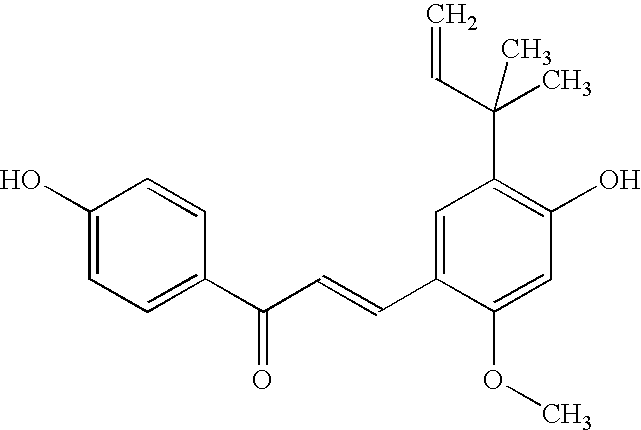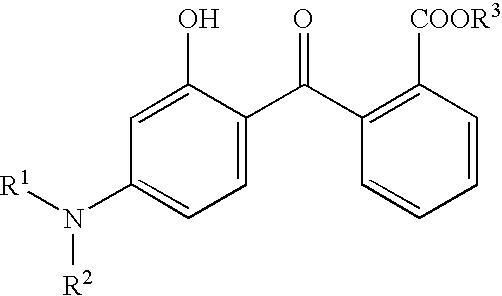Impairment of this function may lead to increased absorption of toxic or allergenic substances or to
attack by microorganisms, resulting in toxic or allergic skin reactions.
The consequence is a barrier damage.
The skin becomes susceptible to negative environmental influences, such as the invasion of microorganisms, toxins, and allergens, possibly resulting in even toxic or allergic skin reactions.
In the case of pathologically dry and
sensitive skin, barrier damage exists a priori.
Epidermal intercellular lipids become deficient or develop in an inadequate quantity or composition.
The consequence is an increased permeability of the
horny layer and an inadequate protection of the skin against loss of hygroscopic substances and water.
Anionic surfactants, which are in general ingredients of cleansing preparations, are capable of increasing the pH value in the
horny layer in a long-lasting manner, which greatly impedes regenerative processes that serve to restore or renew the
barrier function of the skin.
In this instance, a new, often very unfavorable state of equilibrium develops in the
horny layer between regeneration and loss of essential substances as a result of regular extraction.
In addition, skin-inherent, surface-active substances also cause skin fats to be separated and washed away to a certain extent.
However, the protective mechanism of the
skin surface becomes disrupted already in the case of nonpathological deviations from the
normal state, for example, by environmentally caused damage from wear, or irritations,
light damage, aged skin, etc.
The protective mechanism of the skin may then possibly no longer be capable of fulfilling its function, and needs to be regenerated by external measures.
In the case of certain products, after their use is discontinued, the condition of the skin deteriorates, possibly temporarily.
Thus, a long-lasting effect of the product is not normally achieved, or achieved only to a limited extent.
However, these lipids, in particular the ceramides, are very expensive raw materials that are difficult to formulate.
In addition, their effect is mostly much smaller than hoped for.
However, their contribution to the regeneration of a physiologically intact, hydrated and smooth horny layer is limited in terms of scope and time.
Moreover, the effect of the
skin care may subside in the case of a regular treatment.
Thus, a long-lasting effect of the product is not achieved, or only achieved to a limited extent.
However, in the prior art there is a lack of preparations which positively influence the
barrier function and the hydration of the horny layer, and strengthen or even restore the physico-chemical properties of the horny layer and in particular of the lamellae of intercellular lipids.
Those in practical use, in addition to 8-hexadecene-1,16-
dicarboxylic acid, are essentially preparations based on
hydroquinone, which however on the one hand only begin to show an effect after several weeks of use while on the other hand their use over a very long period is not always safe for toxicological reasons.
The inhibition of
tyrosinase with substances such as koji acid,
ascorbic acid,
azelaic acid and their derivatives is also common, but exhibits cosmetic and dermatological disadvantages.
The extent of their effect on structural damage is, however, limited.
Furthermore, in product development there are considerable difficulties in stabilizing the active ingredients to an adequate extent against oxidative decay.
The use of products comprising
vitamin A acid, moreover, often causes severe erythematous skin irritations.
It has been found that
UVA radiation results in damage of the elastic and collagenous fibers of
connective tissue, which leads to
premature aging of the skin, and is to be regarded as a cause of numerous phototoxic and photoallergic reactions.
However, the photostability of these derivatives is inadequate (Int. J. Cosm. Science 10, 53 (1988), the entire disclosure whereof is incorporated by reference herein).
UV
radiation can, however, also lead to photochemical reactions, in which case the photochemical reaction products interfere with the skin
metabolism.
Undefined free radical photoproducts which form in the skin itself can also display uncontrolled secondary reactions because of their high reactivity.
There is therefore the risk that ionic species will also form during UV
exposure, which for their part are able to interfere oxidatively with the biochemical processes.
It has already been proposed to use
vitamin E, a substance with known
antioxidant action, in sunscreen formulations, although, here too, the effect achieved falls far short of expectations.
Nevertheless, it is known that in human or
animal skin undesired oxidation processes may occur as well.
This
crystallization tendency is a great problem, since substance crystals can lead to an uncosmetic appearance, formula instabilities and / or loss of effectiveness.
 Login to View More
Login to View More 


